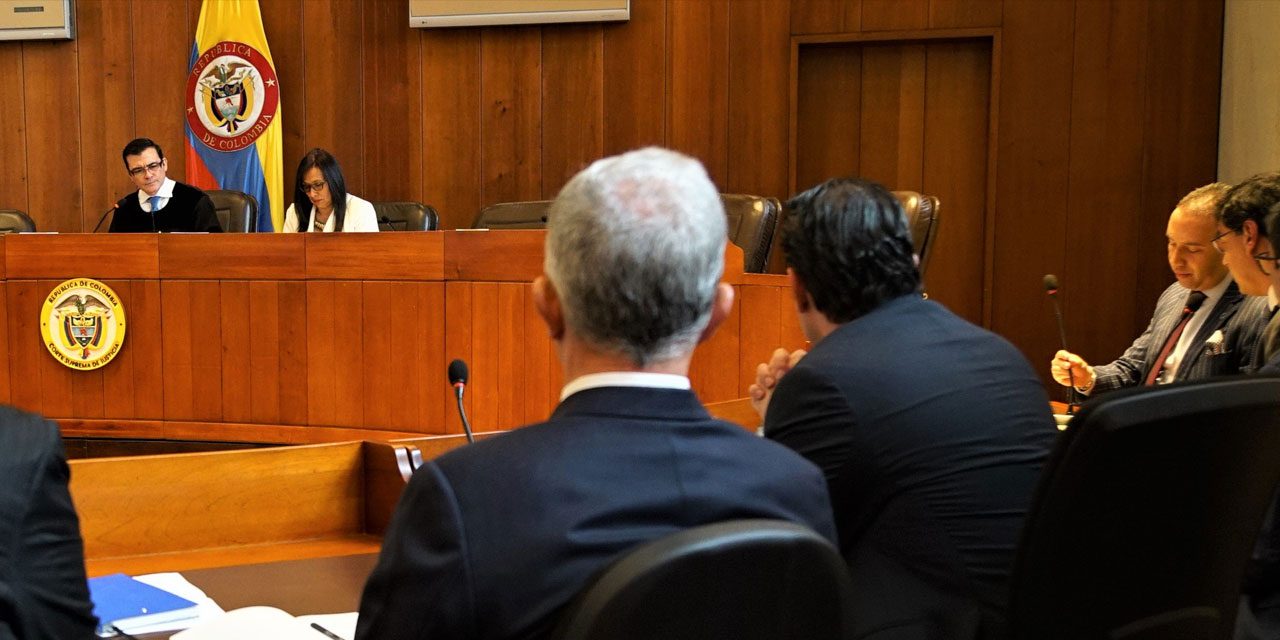Colombia’s former president Alvaro Uribe, his attorneys and his allies have given hints about their legal defense strategy and political offensive.
The legal defense strategy seeks not just to quash the fraud and bribery charges, but also prevent the accumulation of evidence that could be used to sustain more serious accusations made against the former president.
The political offensive seeks to discredit the judiciary and in particular the magistrate presiding over the case.
The legal defense
Uribe’s attorneys have a mammoth task before them; the defense against the fraud and bribery charges is severely complicated by the other criminal accusations that are also at the court.
These charges include the former president’s alleged complicity in homicides and massacres, and could put Uribe away for life. The fraud and bribery charges cannot.
How Colombia’s former president ended up with one foot in prison
The fraud charge is based on the false criminal charges Uribe filed against opposition Senator Ivan Cepeda in 2014. The Supreme Court considers this an act of fraud because it was based on false testimonies made by former members of now-defunct paramilitary organization AUC.
The bribery charge is based on evidence that indicates Uribe ordered the coercion of these witnesses to sustain the false criminal charges.
In regards to the fraud charge, the president has hinted that he never sought individual witnesses, but used witnesses who offered to testify in his favor.
By using this argument, Uribe’s defense can claim that the former president acted in good faith and unintentionally presented false witness testimonies to sustain his bogus criminal charges.
The weakness of this legal argument would be that it largely refers to witnesses who came forward after the Supreme Court opened its criminal investigation and who got Uribe even deeper in trouble.
In regards to the bribery charge, Uribe is facing a similar problem.
The former president said last week that Diego Cadena, the mafia lawyer he hired as fixer, paid a witness without his knowledge or consent.
Cadena, who has left the country, confirmed this from Miami.
Uribe’s fixer leaves Colombia after prosecution announces ‘decisions’ in criminal probes
This argument would allow Uribe’s defense to claim Cadena rather than the former president is guilty of bribery.
The problem with this argument is that it exclusively refers to alleged crimes committed after the court opened an investigation. Cadena had nothing to do with the alleged bribery that led to the criminal investigations.
A significantly stronger argument that has surfaced is that an NGO that defends prisoners’ rights financially supported the family of one of the witnesses who has testified about Uribe’s alleged involvement in the formation of the Bloque Metro.
These payments were made because family members of this witness were fired from their jobs, which was effectively pressuring the witness to withdraw his claim.
This would allow Uribe’s defense to argue that payments made to the former president’s witnesses were made for similar humanitarian reasons.


